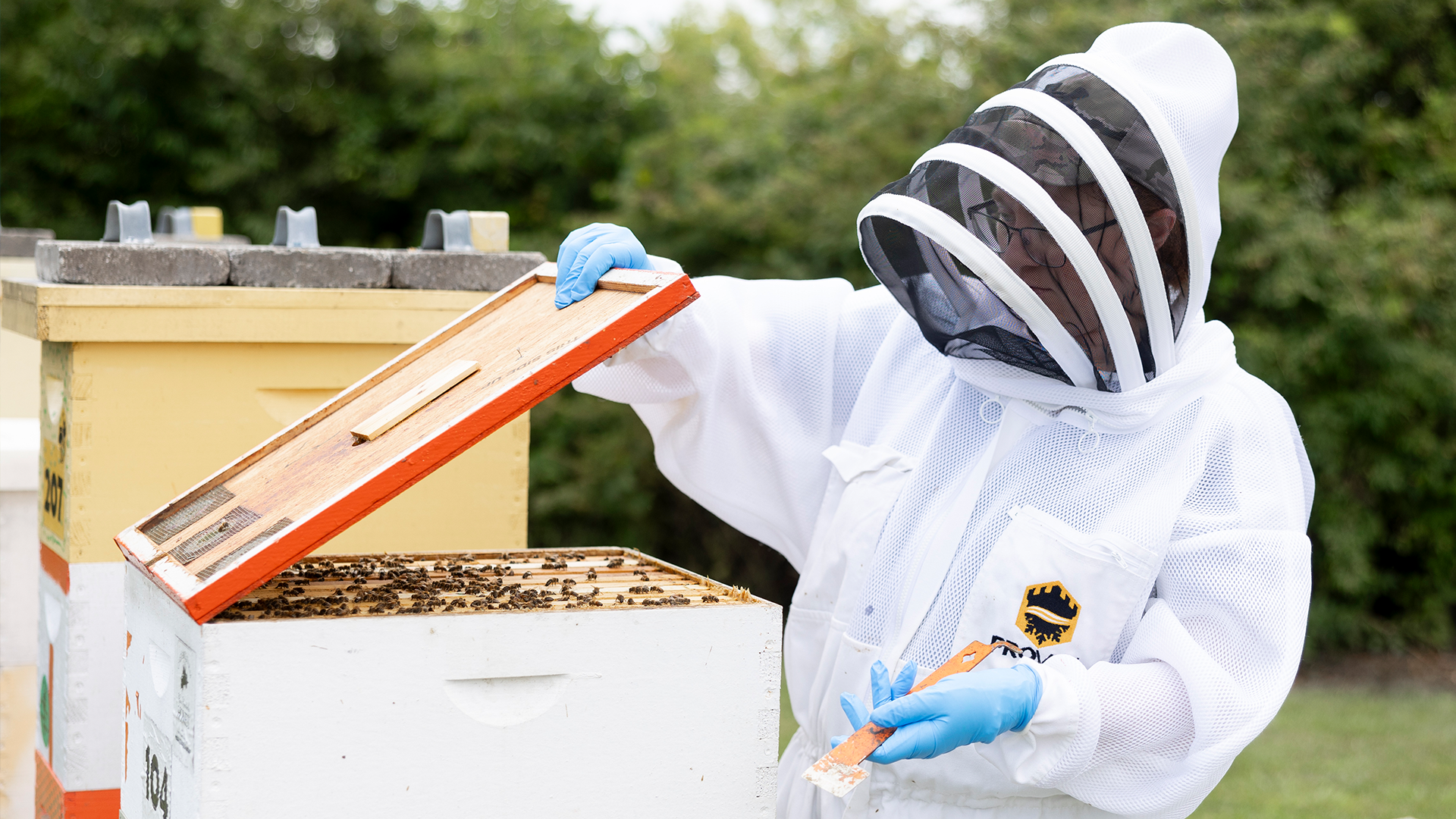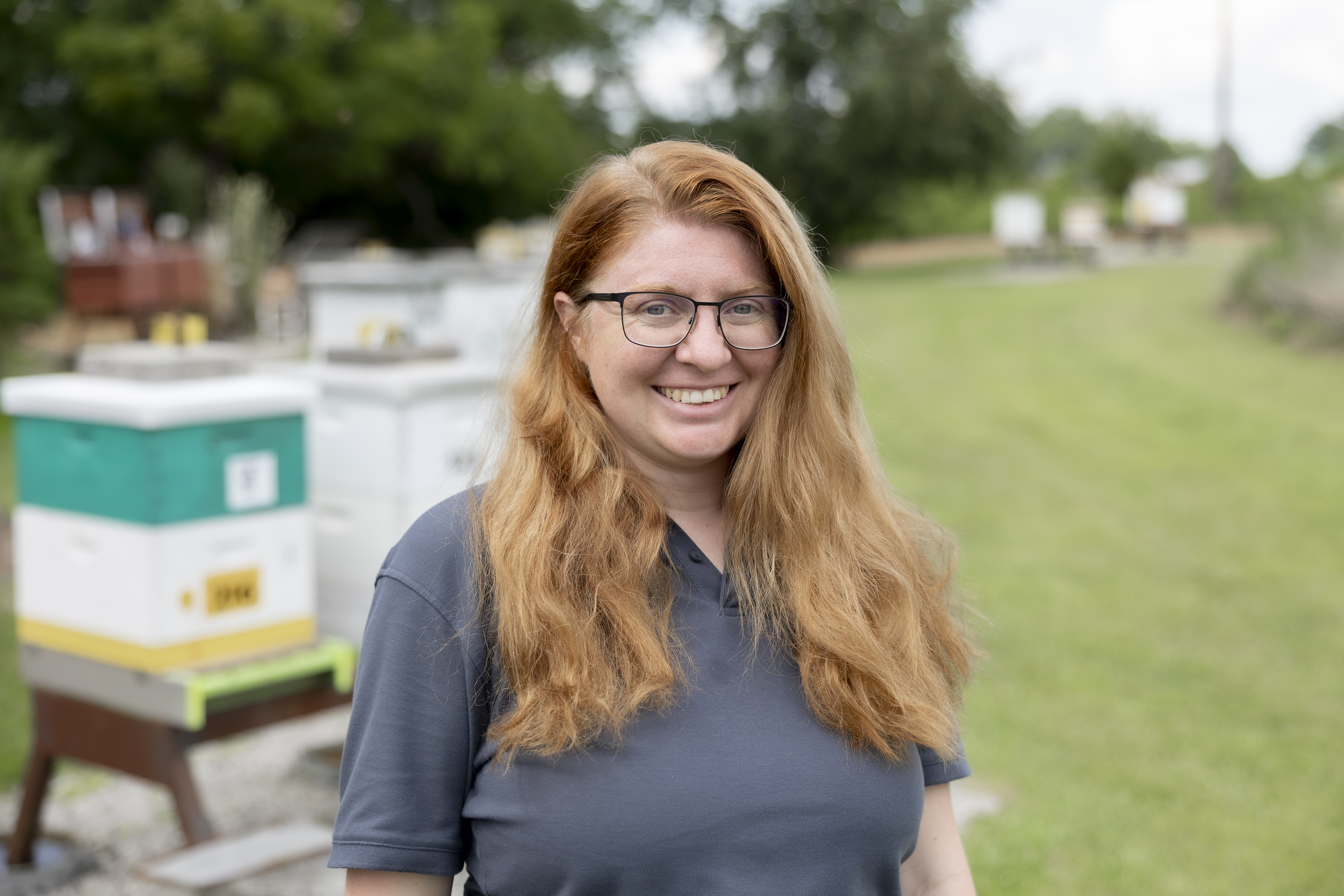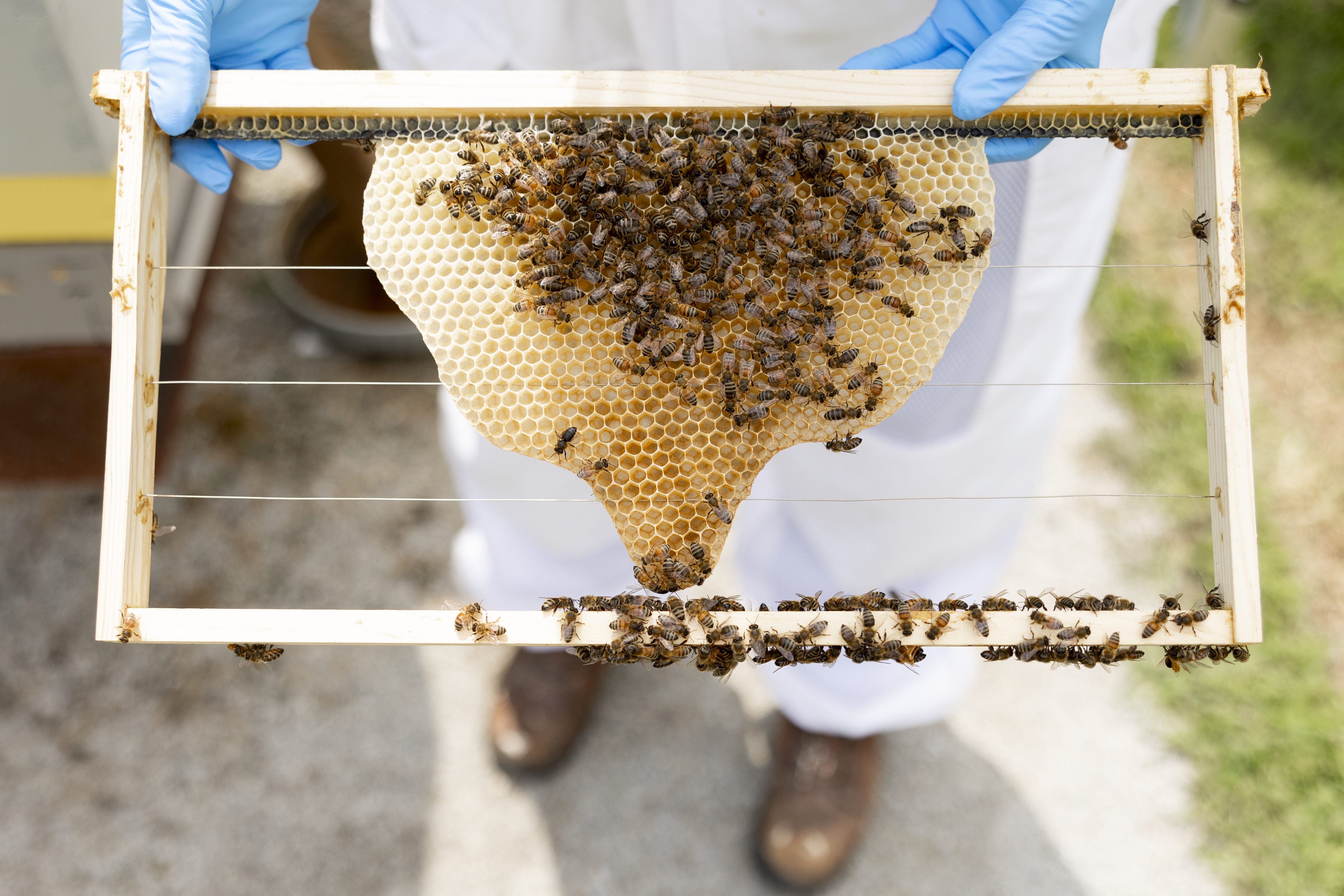Bee-ing prepared: How UK education equipped the state's new apiarist
Bee-ing prepared: How UK education equipped the state's new apiarist


University of Kentucky Martin-Gatton CAFE alumna Amanda Skidmore stepped into her new role as state apiarist for the Kentucky Department of Agriculture in April 2024.
As Kentucky’s state apiarist, Skidmore oversees vital regulatory and educational duties, from inspecting honeybee colonies for diseases to advising beekeepers on best practices. She also takes on the important task of educating the broader community about the essential role bees play in the ecosystem.

“I’m excited,” Skidmore said. “It’s a great position that allows me to be flexible in building a program to address beekeepers’ needs.”
Though most of Kentucky’s beekeepers are hobbyists rather than commercial producers, bees are vital to the state’s agriculture industry, making the state apiarist a key position.
“Bees are super important to Kentucky,” Skidmore said. “Every crop that we grow is going to have an impact from an insect in some way—it's either going to need a bee to help pollinate it, or it's going to have pests that we need to learn how to control and manage.”
Skidmore said her knowledge of bugs and bees is rooted in her time at UK, which began with a Department of Entomology internship when she was in high school.
“I got very interested in insects, bugs—everything that was related to science,” she said.
At UK, she earned her bachelor’s degree in sustainable agriculture and entomology in 2013, followed by a doctorate degree that focused on integrated pest management for small specialty crops in Kentucky.
“To this new position, Dr. Skidmore brings a wealth of understanding of Kentucky agriculture, pollinator, and pesticide stewardship to better advance honeybees and beekeeping in Kentucky,” said Ric Bessin, extension professor in the UK Department of Entomology.
As an undergraduate and graduate student, Skidmore worked with Bessin on a multi-state research project to develop more sustainable pest management strategies for squash and melon production. Skidmore evaluated the effects of combining insect netting, plasticulture, and strip tillage on insect natural enemy populations and yield and quality of the produce. She also studied how the squash bee, Pepinapis prunosa, selects nesting locations in crop fields. Skidmore, Bessin and team members published results in HortTechnology in 2019.
Outside the classroom, Skidmore gained valuable experience through UK Cooperative Extension, giving presentations to stakeholders across the state. Most students can't say they gave 40 extension presentations before even graduating, but Skidmore did. This gave her an opportunity to explore the career path of science communication and outreach.
“That was something I found really exciting, that ability to be the bridge between science at the university and real-world problems and situations—and trying to help build the connection,” Skidmore said. “So extension and outreach is something I’ve been very passionate about throughout my career.”
As state apiarist, Skidmore will continue to work alongside Cooperative Extension. Many county-level beekeeper groups meet at extension offices, and Skidmore will often work with extension personnel to give guidance to Kentucky producers.

“Having a network of extension offices and educated beekeepers is awesome because it keeps our bees healthy and it helps promote the industry,” Skidmore said.
Another benefit of that network: It’s simply fun to be in a strong community of people who love the same thing.
“All beekeepers are just actually wonderful people,” said Don Chesak, president of the Oldham County Beekeepers Association. “We love to help each other and learn from each other.”
The sense of community among beekeepers is mirrored in honeybees themselves—Skidmore’s favorite bee characteristic.
“I really enjoy watching how bees work together,” she said. “The colony structure is really unique, to have a matriarchal system with a queen that lays eggs. It’s really cool to see that structure and the way they communicate with each other and just the importance to agriculture."
Having a state apiarist like Skidmore as part of that community is good for everyone and for Kentucky, Chesak said. When beekeepers have concerns, Skidmore can communicate with state officials so they understand what is happening at the local level.
“Having her in the middle is going to be a huge advantage for us to help us ensure our bees in Kentucky stay healthy,” he said.
# # #
The Martin-Gatton College of Agriculture, Food and Environment is an Equal Opportunity Organization with respect to education and employment and authorization to provide research, education information and other services only to individuals and institutions that function without regard to economic or social status and will not discriminate on the basis of race, color, ethnic origin, national origin, creed, religion, political belief, sex, sexual orientation, gender identity, gender expression, pregnancy, marital status, genetic information, age, veteran status, physical or mental disability or reprisal or retaliation for prior civil rights activity.
Entomology

